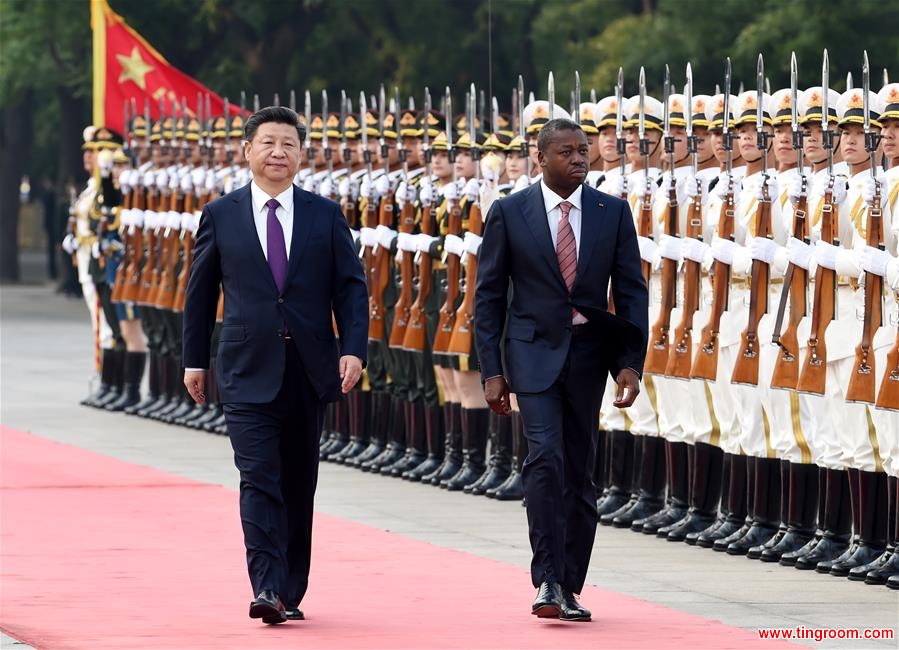CCTV9英语新闻:Presidents Xi, Gnassingbe meet in Beijing
(单词翻译:单击)
The president of Togo, Faure Gnassingbe, is on a state visit to China and has met with his Chinese counterpart Xi Jinping in Beijing. Xi hailed China's cooperation with the west African nation as "outstanding and intense".

BEIJING, May 30, 2016 (Xinhua) -- Chinese President Xi Jinping (L) holds a welcoming ceremony for Togolese President Faure Gnassingbe before their talks in Beijing, capital of China, May 30, 2016. (Xinhua/Rao Aimin)
The Togolese president is the third head of state to visit China in the past two months, following his Nigerian and Mozambican counterparts.
The two countries signed 7 deals during his visit, ranging from technological transfers to China's investment in Togo's infrastructure construction.
Chinese diplomats say the recent string of African leaders' visiting China is partly in response to last December's Sino-Africa Summit in Johannesburg. President Xi Jinping pledged funds worth 60 billion US dollars to Africa during the summit.
"After last December's Summit, over 30 African countries established cross-ministerial coordination teams to put the commitments into action. Such a fast and high-level response to a summit is very rare in the history of international relations, marking a new era of China's cooperation with African countries," said Lin Songtian, director general of Africa Dep't, Ministry of Foreign Affairs.
Togo is a small country in West Africa with a population of 6 million. It gained independence from France in 1960 and estalished diplomatic relations with China in 1972.
China and Togo have maintained over forty years of friendly relations. And this time, the two countries reached consensus on a number of issues, including South China Sea and Belt and Road.
The Togolese President says the country intends to be the "anchor point" in Africa for China's Belt and Road initiative. It hopes to build up a logistic corridor for the new trade routes.
Togo issued a communique on the South China Sea disputes ahead of Gnassingbe's visit, calling upon countries directly concerned to resolve the dispute through dialogue- a move China praised.
Lin also said, "The Phillipines unilaterally initiated an arbitration case against China over disputes in the South China Sea, causing strong discontent among many African countries, including Togo, Gambia, Niger and Mozambique."
"This is because they are concerned that if the arbitration becomes an example of dealing with territorial disputes, it will cause much bigger threats to regional stability, not just here in Asia, but also in Africa."
Over the next three days, Gnassingbe will also visit Shenzhen to learn about economic reforms, and the western city of Chengdu to to see how China is handling multi-ethnic relations.




